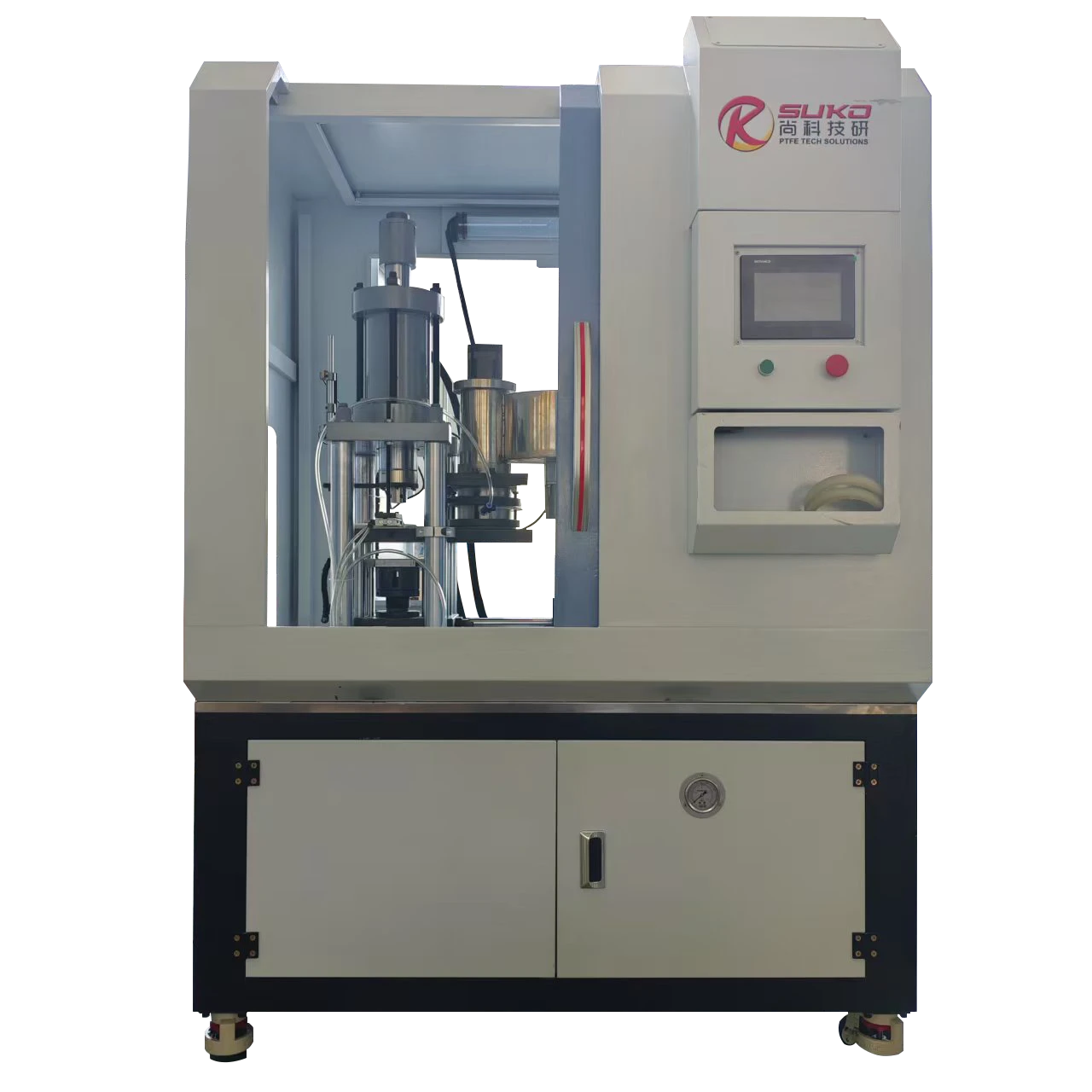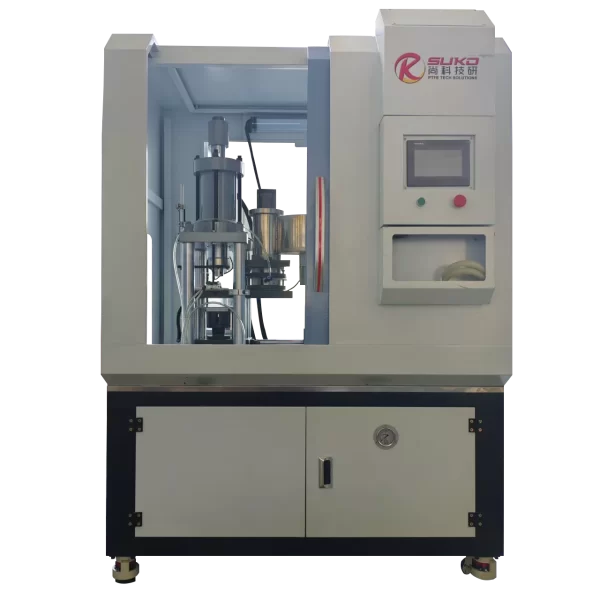In the high-stakes world of chemical processing, the smallest component can have the biggest impact. A single failed seal can lead to catastrophic consequences, including hazardous leaks, costly operational downtime, environmental contamination, and severe safety risks for personnel. The core of this challenge lies in the relentless nature of the materials being handled. Aggressive chemical sealing is not just a maintenance task; it’s a critical engineering discipline that stands between a smooth operation and a potential disaster.
The demand for robust and reliable chemical processing solutions has never been higher. According to reports from the Occupational Safety and Health Administration (OSHA), equipment and process failures are a leading cause of incidents in the chemical industry. Many of these failures can be traced back to the degradation of sealing components that were not suited for the demanding service conditions.
This is where the material science of sealing comes into sharp focus. While various elastomers and metals have their place, they often fall short when faced with a combination of corrosive chemicals, extreme temperatures, and high pressures.
At SUKO, we have dedicated decades to mastering the engineering and manufacturing of high-performance polymer solutions. Through our experience, we’ve identified five fundamental challenges that plant managers, maintenance engineers, and safety officers consistently face.
Challenge 1: Extreme Chemical Corrosion and Material Degradation
The primary function of a gasket is to create a static seal between two flange faces, but its most difficult job is to survive the medium it contains.
The Problem: A Relentless Attack at the Molecular Level
Aggressive chemicals, such as concentrated sulfuric acid, nitric acid, sodium hydroxide, chlorine, and various industrial solvents, are notoriously destructive. They attack sealing materials in several ways:
- Chemical Attack: The medium directly reacts with the polymer chains of the gasket material, breaking them down and causing a loss of physical properties, leading to brittleness or a mushy, ineffective seal.
- Swelling: The gasket material absorbs the chemical medium, causing it to swell. While minor swelling can sometimes aid sealing, excessive swelling compromises the gasket’s structural integrity, reduces its mechanical strength, and can even lead to extrusion from the flange.
- Permeation: The chemical medium slowly passes through the gasket material, even without a visible leak path. This is a significant concern with hazardous gases or volatile organic compounds (VOCs).
Traditional materials like EPDM, Neoprene, or even some fluoroelastomers (FKM) have limited chemical compatibility charts. A material suitable for a strong acid may fail catastrophically when exposed to a specific solvent. This “one-trick-pony” limitation makes material selection a minefield.
The PTFE Gasket Solution: Near-Universal Chemical Inertness
Polytetrafluoroethylene (PTFE) is a fluoropolymer with a molecular structure that is almost invincible to chemical attack. Its carbon-fluorine bonds are exceptionally strong and stable, creating a protective “shield” of fluorine atoms around the carbon backbone.
This results in:
- Unmatched Chemical Resistance: PTFE is inert to virtually all industrial chemicals and solvents. The only exceptions are molten alkali metals (like sodium) and some exotic, highly reactive fluorine compounds. This makes it the default “go-to” material for mixed chemical streams or applications where process conditions change.
- No Swelling or Degradation: Because it does not react with or absorb the media, a PTFE gasket maintains its original dimensions and mechanical properties throughout its service life. This ensures a consistent and reliable seal pressure on the flange faces.
- Low Permeability: The dense molecular structure of high-quality, properly manufactured PTFE minimizes the permeation of gases and liquids, making it a cornerstone of effective leak prevention.
By choosing PTFE, engineers eliminate the guesswork and risk associated with chemical compatibility, simplifying inventory and enhancing plant-wide safety.
Challenge 2: Extreme Temperature Fluctuations and Thermal Cycling
Chemical processes rarely occur at a stable ambient temperature. They often involve extreme heat from reactions, cryogenic conditions for liquefying gases, or constant cycling between temperature points.
The Problem: Expansion, Contraction, and Loss of Seal Load
Temperature changes cause materials to expand (when heated) and contract (when cooled). This presents two major problems for sealing:
- Material Degradation: Many elastomers become brittle at low temperatures, losing their ability to conform to flange imperfections. At high temperatures, they can soften, degrade, or take a permanent compression set, meaning they won’t recover their shape when the load is removed, leading to leaks upon cooling.
- Loss of Bolt Load: As a gasket and the surrounding flanges cycle through temperatures, they expand and contract at different rates. This can cause the bolts holding the flange together to lose their preload tension. A loss of bolt load means less compressive force on the gasket, opening a path for leaks. This is a primary cause of failure in applications with thermal cycling.
The PTFE Gasket Solution: A Wide Service Temperature Range
One of the most significant PTFE gasket advantages is its incredibly wide and stable service temperature range.
- Virgin PTFE gaskets can reliably operate from cryogenic temperatures of -200°C (-328°F) up to a continuous service temperature of +260°C (+500°F).
This thermal stability means that a PTFE gasket maintains its core sealing properties across the vast majority of chemical processing applications. It doesn’t become brittle in liquid nitrogen service, nor does it degrade in high-temperature reactors. This stability helps to maintain a more consistent seal stress on the flange faces even during thermal cycling, significantly reducing the risk of temperature-induced leaks.
Challenge 3: Maintaining Product Purity and Preventing Contamination
In industries like pharmaceuticals, food and beverage, and high-purity electronics manufacturing, the gasket must not only contain the process medium but also protect it from contamination.
The Problem: Leaching and Extractables
Many gasket materials, especially those with binders, fillers, or plasticizers, can “leach” these substances into the process stream. This contamination can:
- Ruin entire batches of high-value products.
- Cause non-compliance with regulatory standards (e.g., FDA, USP Class VI).
- Poison catalysts in a chemical reactor.
The gasket itself becomes a source of contamination, which is unacceptable in high-purity applications.
The PTFE Gasket Solution: Intrinsic Purity and Compliance
Virgin PTFE is inherently one of the purest materials available for sealing.
- No Additives: It contains no plasticizers, stabilizers, or processing aids that could leach out. What you get is a pure, stable polymer.
- FDA and USP Class VI Compliant: Because of its purity and inertness, virgin PTFE easily meets the stringent requirements for food, beverage, and pharmaceutical contact.
- Anti-Stick Properties: PTFE’s famous non-stick surface (the same property used in cookware) prevents process media from adhering to the gasket. This makes cleaning (Clean-in-Place, CIP) processes more effective and reduces the risk of cross-contamination between batches.
For operations demanding the highest purity, there is no better choice. This is a core focus of our manufacturing process. The Chemical Industry PTFE Gasket Molding Machine | SUKO Auto Press is engineered to produce high-purity gaskets with consistent density, ensuring that the final product meets these critical standards for chemical processing solutions.
Challenge 4: Handling High Pressures and Resisting Creep
While temperature and chemical resistance are crucial, a gasket must also withstand the mechanical forces of the application.
The Problem: Extrusion and Cold Flow (Creep)
- Extrusion: Under high seating stress or internal pressure, a soft gasket material can be forced or “extruded” into the gap between the flanges, leading to a loss of sealing area and eventual failure.
- Creep (Cold Flow): This is the tendency of a solid material to deform permanently under the influence of persistent mechanical stress. For a gasket, this means it slowly “flows” or thins out over time, even at stable temperatures. This relaxation causes a loss of bolt load and sealing pressure, resulting in delayed leaks that are difficult to predict.
Virgin PTFE is known to have a susceptibility to creep, which has historically been a concern for engineers in high-pressure or high-temperature applications.
The PTFE Gasket Solution: Engineered Materials and Proper Manufacturing
This is where material science and precision manufacturing provide a definitive answer. The challenge of creep is overcome in two ways:
- Filled PTFE Grades: To enhance mechanical properties, PTFE can be compounded with various filler materials. Each filler imparts specific characteristics, drastically improving creep resistance, wear resistance, and thermal conductivity.
| Filler Material | Key Advantages | Typical Applications |
|---|---|---|
| Glass Fiber | Greatly improved creep and wear resistance. Good chemical resistance (except for hydrofluoric acid and strong alkalis). | Strong acids, solvents, hydrocarbons, general chemical service. |
| Carbon | Excellent creep resistance, high thermal conductivity, good in water and steam. Not suitable for highly oxidizing environments. | High-pressure steam, inert gas service, applications requiring static dissipation. |
| Graphite | Similar to carbon but with enhanced lubricity and thermal properties. | High-temperature and high-pressure applications, thermal cycling. |
| Barium Sulfate | Excellent chemical resistance, particularly to strong alkalis. High density and smooth finish. | Highly concentrated alkalis (e.g., sodium hydroxide), specialty chemicals. |
- Precision Manufacturing: The creep characteristics of a gasket are heavily influenced by how it’s made. A poorly molded gasket with voids or inconsistent density will fail prematurely. This is why the manufacturing process is critical. The SUKO Auto Press utilizes precise control over pressure and temperature cycles to create fully sintered, high-density PTFE gaskets. This process minimizes internal voids and locks the polymer structure, resulting in a gasket with significantly improved creep resistance compared to lower-quality alternatives.
Challenge 5: Sealing Complex Geometries and Ensuring Proper Installation
Not all flanges are perfectly flat, perfectly aligned, or easily accessible. Real-world conditions often involve warped flanges, scratched surfaces, or non-standard configurations.
The Problem: Imperfect Surfaces and Installation Errors
- Surface Imperfections: Scratches, pits, or waviness on a flange face create leak paths that a hard or non-conformable gasket cannot fill.
- Misalignment: Pipe stress can cause flanges to be non-parallel, leading to uneven gasket compression and a guaranteed leak on the side with lower stress.
- Complex Shapes: Custom reactor vessels, manways, and heat exchangers often require large, non-standard, or intricately shaped gaskets that are difficult to produce and install.
The PTFE Gasket Solution: Conformability and Machinability
PTFE offers the perfect balance of strength and conformability.
- Excellent Conformability: A well-made PTFE gasket is soft enough to flow into and seal off minor imperfections on the flange surface, creating a superior seal even on older or slightly damaged equipment.
- Machinability and Moldability: PTFE can be easily machined into virtually any custom shape or size with tight tolerances. For high-volume or complex parts, it can be compression molded. This versatility ensures that a perfect-fit gasket can be created for any application, from standard ANSI pipe flanges to unique equipment manways.
Наш Chemical Industry PTFE Gasket Molding Machine exemplifies this capability. It automates the production of precision gaskets, ensuring every part is dimensionally accurate and possesses the ideal mechanical properties for reliable sealing, directly addressing the challenge of complex aggressive chemical sealing requirements.
Anonymized Application Scenario: Success in the Field
A major specialty chemical plant was experiencing weekly failures on a reactor manway seal. The process involved cycling between a hot, aggressive solvent and a cool-down phase. The existing elastomer gaskets would degrade from the solvent and take a compression set during the thermal cycle, leading to leaks, costly product loss, and hazardous vapor release.
After a consultation, they transitioned to a custom-molded, glass-filled PTFE gasket produced through a precision molding process similar to that of the SUKO Auto Press.
The result: The sealing interval went from one week to over 12 months, aligning with their planned annual shutdown. This eliminated unplanned downtime, saved tens of thousands of dollars in lost product, and dramatically improved site safety. This is a testament to choosing the right material and ensuring it is manufactured to the highest standards.
Don’t Compromise on Safety and Efficiency: The SUKO Solution
The five challenges—corrosion, temperature, purity, pressure, and geometry—represent the daily reality of chemical processing solutions. Ignoring any one of them is a gamble with safety, environmental compliance, and your bottom line.
PTFE gaskets, when properly selected and manufactured, are not just a component; they are a comprehensive solution. They provide the peace of mind that comes from knowing your most critical sealing points are secured by a material engineered to withstand the harshest conditions.
At SUKO, we don’t just sell machinery; we provide the foundation for operational excellence. Our Chemical Industry PTFE Gasket Molding Machine | SUKO Auto Press is the culmination of our expertise, designed to empower you to produce your own superior, high-integrity PTFE gaskets in-house. This ensures you have the right seal, with the right properties, right when you need it.
Stop letting seal failure dictate your maintenance schedule and budget. Take control of your leak prevention strategy.
- Ready to eliminate chemical leaks for good?
- Interested in the unparalleled reliability of precision-molded PTFE gaskets?
Contact the SUKO experts today for a personalized consultation. Let’s discuss your specific application challenges and how our technology can enhance your plant’s safety and efficiency.
You can also reach our team directly at info@ptfe-machinery.com to request a detailed quote or learn more about our advanced solutions. Visit our website at https://ptfe-machinery.com to explore our full range of PTFE processing equipment.
Frequently Asked Questions (FAQ)
The key difference is chemical structure. Elastomers (like rubber) rely on their flexible, cross-linked polymer chains to create a seal. These chains are susceptible to attack by many chemicals and have a much narrower temperature range. PTFE is a fluoropolymer with extremely strong carbon-fluorine bonds, making it almost universally inert and thermally stable. While elastomers seal by being “spongy,” PTFE creates a highly durable, low-friction, non-contaminating barrier.
Yes, but the grade of PTFE is critical. Virgin PTFE is generally not recommended for high-pressure steam due to its tendency to creep. However, filled grades, particularly carbon-filled or graphite-filled PTFE, are specifically designed for this. They offer excellent creep resistance and the thermal conductivity needed to manage steam applications effectively, making them a superior choice over many traditional steam-sealing materials.
The choice depends on four key factors: Temperature, Application (the media being sealed), Pressure, and Size (TAPS).
① Media: For ultra-pure applications (pharma, food) or highly oxidizing chemicals, virgin PTFE is best. For most other chemicals, a filled grade is suitable.
② Temperature & Pressure: As temperature and pressure increase, the need for a creep-resistant filled PTFE (like glass, carbon, or graphite-filled) becomes essential.
③ Consult an Expert: The best way to ensure the correct selection is to consult with a sealing specialist. The team at SUKO can analyze your process conditions and recommend the ideal material and gasket design. Contact us to leverage our expertise for your sealing challenges.
Chemical Industry PTFE Gasket Molding Machine | SUKO Auto Press
SUKO’s PTFE Gasket Molding Machine is expertly engineered for the chemical processing industry, ensuring superior seal integrity. This automatic gasket press machine produces high-purity PTFE gaskets resistant to corrosive media. Optimize your chemical plant’s sealing solutions with our reliable Automatic PTFE Gasket Moulding Machine for enhanced safety and efficiency.





